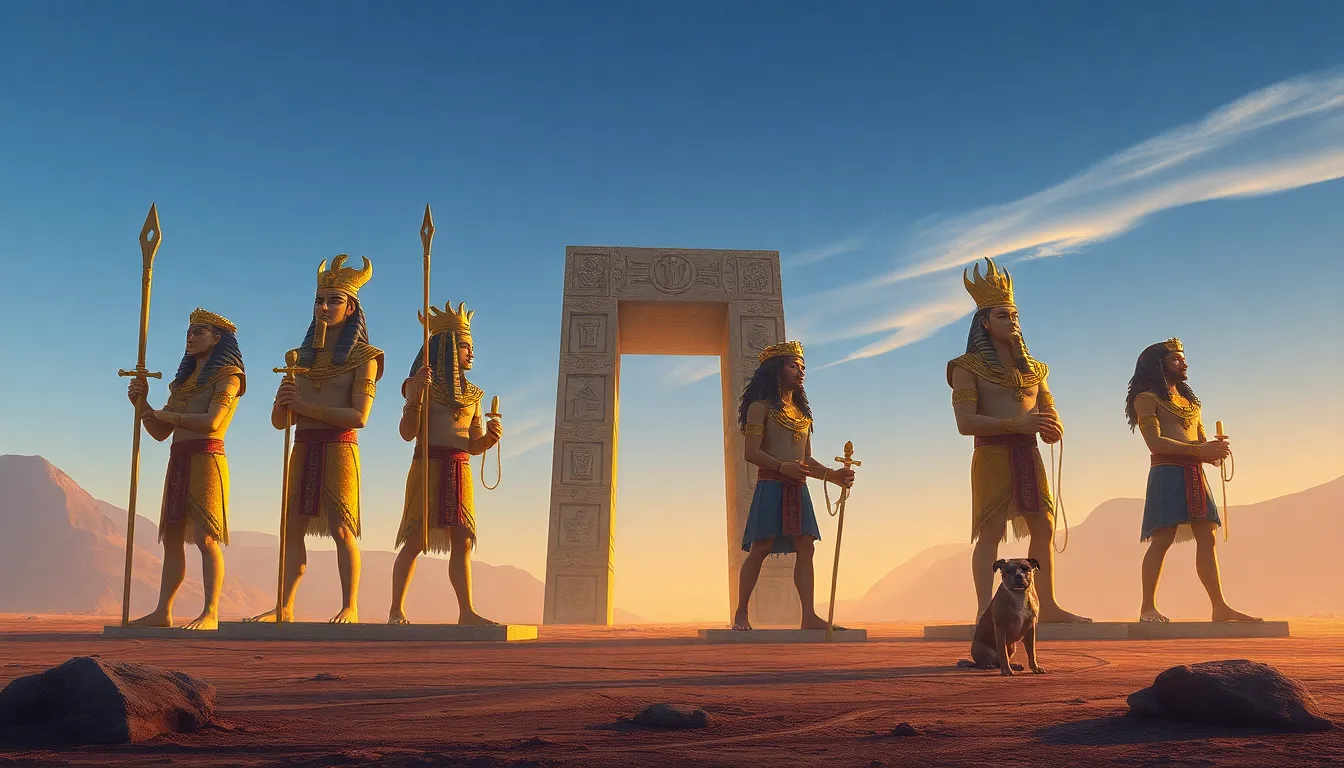The Guardians of the Horizon: How Deities Protected Travelers
I. Introduction
Throughout history, travel has held immense importance in various cultures, serving as a means for trade, exploration, and pilgrimage. Ancient societies often viewed travel not just as a physical journey but as a profound experience intertwined with spiritual significance. In this context, deities emerged as guardians of the travelers, offering protection and guidance on their journeys.
This article delves into the role of divine guardians in ancient travel, exploring how various cultures revered deities who were believed to safeguard those who ventured into the unknown.
II. Historical Context of Travel in Ancient Societies
Travel in ancient times was crucial for several reasons:
- Trade: Merchants traveled vast distances to exchange goods, leading to economic prosperity.
- Exploration: Adventurers sought new lands and resources, expanding the horizons of their cultures.
- Pilgrimage: Spiritual journeys to sacred sites were essential for religious practices and cultural identity.
However, travel was fraught with dangers. Travelers faced threats from harsh weather, wild animals, treacherous terrains, and often hostile encounters with other people. In light of these challenges, seeking spiritual protection for safe passage became a common practice.
III. Major Deities Associated with Travel
Numerous cultures worshipped deities specifically associated with travel, each with unique attributes and stories. Here are some of the most notable:
- Hermes: In Greek mythology, Hermes is the messenger of the gods and a protector of travelers. He was believed to guide souls to the afterlife and ensure the safety of those on journeys.
- Odin: The chief god in Norse mythology, Odin is associated with wisdom, war, and poetry. He was revered by travelers for his knowledge and ability to navigate even the most perilous paths.
- Hecate: Also from Greek mythology, Hecate is the goddess of magic and crossroads. She is often called upon for protection at critical junctures of travel.
- Other Deities: Various cultures have their own travel deities, such as Tlaloc in Aztec mythology, who was associated with rain and safe passage through landscapes, or the Hindu god Ganesha, revered for removing obstacles in one’s path.
IV. Myths and Legends of Travel Protection
Across cultures, stories abound of miraculous journeys aided by deities. Here are a few examples:
- In Greek mythology, Odysseus received divine assistance from Athena during his perilous journey home from the Trojan War, showcasing the belief in divine intervention.
- In Norse tales, travelers would invoke Odin’s guidance to find safe passage through storms and difficult terrains.
Folklore surrounding protective rituals and prayers also flourished, with travelers often reciting incantations or performing specific rites before embarking on their journeys. These practices varied widely across civilizations, reflecting their unique beliefs and cultural values.
V. Symbolism of Guardianship in Travel
Symbols and artifacts associated with travel deities played a significant role in the spiritual lives of ancient travelers:
- Amulets and Charms: Travelers would often carry small tokens or amulets inscribed with the names of deities, believed to confer protection and good fortune.
- Offerings: It was common to leave offerings at sacred sites or shrines dedicated to travel deities, seeking their favor and protection for safe travels.
- Sacred Sites: Certain locations were revered as sacred, where travelers could stop to pray or give thanks, reinforcing the connection between the divine and the journey.
VI. Rituals and Practices for Safe Travels
Before embarking on journeys, various rituals were performed to ensure safety:
- Pre-journey Blessings: Priests and shamans often conducted blessings, invoking the deities’ protection over the travelers.
- Community Practices: In many cultures, communities would gather to pray collectively for the safe return of travelers, reinforcing social bonds and shared beliefs.
- Ritual Offerings: Travelers would often make offerings to deities at the beginning of their journey, asking for guidance and protection.
VII. The Legacy of Travel Deities in Modern Culture
Even today, the influence of ancient travel deities persists in contemporary beliefs and practices:
- Influence on Modern Beliefs: Many cultures still honor travel deities, invoking their names in prayers or rituals before significant journeys.
- Contemporary Symbols: Modern travelers often use symbols like the St. Christopher medal for protection, echoing ancient practices.
- Spiritual Protection: The desire for spiritual protection remains relevant, with many people seeking blessings or engaging in rituals before traveling.
VIII. Conclusion
In conclusion, the role of deities in safeguarding travelers has been a significant aspect of ancient cultures, reflecting the deep-seated need for protection and guidance on journeys. The intersection of faith, culture, and the human experience of travel illustrates the enduring legacy of these divine guardians.
As we continue to explore the world, the stories and symbols of ancient travel deities remind us of the timeless quest for safety and reassurance on our paths. The Guardians of the Horizon remain an integral part of our travel narrative, bridging the past and present in our journeys.




